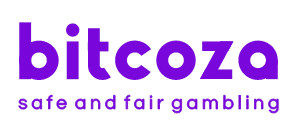Cryptocurrency casinos operate in a complex regulatory landscape where traditional gambling oversight intersects with digital finance. While some jurisdictions embrace these platforms with clear frameworks, others struggle to adapt existing laws to address the unique challenges posed by blockchain technology and digital currencies in online gambling.
Key Takeaways
- Crypto casinos require specific gaming and cryptocurrency licenses from jurisdictions like Curacao, which offers universal permits for gambling operations.
- Operators must implement strict AML and KYC protocols, including identity verification and transaction monitoring systems.
- Regulatory frameworks vary globally, with some regions having strict oversight while others maintain semi-regulated or unregulated environments.
- Licensed crypto casinos must comply with player protection measures, including responsible gambling tools and secure digital wallet systems.
- Regular compliance audits, RNG certification, and documentation of ownership are mandatory requirements for regulated crypto casino operations.
Understanding Crypto Casino Regulation
Key licensing requirements include:
- Gaming licenses from reputable jurisdictions
- Crypto-specific licenses for currency transactions
- Detailed documentation of ownership and solvency
- Compliance with jurisdictional variations
Operators must implement thorough compliance measures:
- Robust AML and KYC policies
- Data protection protocols
- Responsible gambling features
- Regular compliance audits
The regulatory environment varies significantly across different regions, with popular frameworks established in jurisdictions like Costa Rica and Curacao. These frameworks typically mandate:
- Implementation of security measures
- Integration of reliable gaming software
- Support for multiple cryptocurrencies
- Secure payment processing systems
Understanding these requirements is vital for both operators and users. Players enjoy enhanced privacy levels when using crypto casinos compared to traditional online gambling platforms. Operators must maintain current licenses, while players should verify platform legitimacy before participation. This regulatory structure helps guarantee fair operations while protecting user interests in the rapidly evolving crypto gambling sector.
Global Legal Framework
The global legal framework for crypto casinos varies significantly across regions, with jurisdictions like Malta and the UK implementing strict regulatory measures while others maintain loose or nonexistent controls. Cross-border licensing requirements present unique challenges for operators, who must navigate complex compliance frameworks when serving players from multiple jurisdictions. Jurisdictional control measures range from thorough oversight in regulated markets to minimal supervision in territories with more permissive approaches, creating a fragmented regulatory environment for crypto gambling operations. Curacao has emerged as a popular choice for crypto casino operators due to its cost-effective licensing process.
Regional Compliance Variations
Regulatory environments for crypto casinos vary dramatically across different jurisdictions, creating a complex patchwork of compliance requirements worldwide. Countries like the UK, Malta, and Estonia maintain strict oversight through dedicated gaming authorities, ensuring robust player protection and anti-money laundering measures. Low transaction fees and rapid processing times make crypto casinos particularly appealing in regulated markets.
Semi-regulated markets present unique challenges, with countries like the US and Canada operating under varying regional laws. While some jurisdictions explicitly ban crypto gambling, others maintain grey areas that operators navigate carefully. Emerging markets, including Australia’s Northern Territory and Cyprus, are developing new frameworks to accommodate crypto gambling operations.
The following key factors shape regional compliance requirements:
- Stringent jurisdictions require thorough licensing, regular audits, and strict adherence to AML/KYC protocols
- Semi-regulated markets often operate under existing gambling laws that may not specifically address cryptocurrency
- Emerging markets are developing new frameworks that balance innovation with consumer protection
The decentralized nature of cryptocurrencies continues to challenge regulators worldwide. As the industry evolves, jurisdictions must adapt their regulatory approaches while maintaining vital protections for players and preventing illegal activities.
Cross-Border Licensing Requirements
Cross-border licensing requirements for crypto casinos bring forth a complex web of international regulations, with operators needing to navigate multiple jurisdictional frameworks simultaneously. Different regions maintain varying approaches to cryptocurrency gambling operations, creating a diverse regulatory environment.
Key Cross-Border Requirements:
- Operators must obtain appropriate licenses for each jurisdiction they serve
- Compliance with local AML and KYC regulations is mandatory
- Adherence to specific cryptocurrency handling guidelines varies by region
- Regular audits and reporting requirements differ across jurisdictions
While Curacao offers a universal permit covering approximately 70% of gambling projects, other jurisdictions maintain stricter requirements. The Malta Gaming Authority and UK Gambling Commission allow cryptocurrency operations under specific conditions, focusing on player protection and anti-money laundering measures. The instant withdrawal process makes crypto casinos particularly attractive for operators seeking to reduce traditional banking complexities.
Emerging markets are developing new frameworks to address cross-border operations, with emphasis on:
- Transparent business practices
- Security measures and capital requirements
- Integration of blockchain technology
- Responsible gambling protocols
- International compliance standards
This regulatory environment requires operators to maintain multiple licenses and adapt their operations to meet diverse regional requirements while ensuring consistent service delivery across borders.
Jurisdictional Control Measures
Global jurisdictional control measures governing crypto casinos reflect a diverse and fragmented regulatory environment, where different nations implement varying levels of oversight and compliance requirements. Leading jurisdictions like Malta and Gibraltar have established extensive frameworks that balance innovation with consumer protection, while others maintain strict prohibitions or operate with minimal oversight. The industry’s explosive growth to projected $280 billion demonstrates the urgent need for comprehensive regulations.
Key regulatory bodies like the Malta Gaming Authority and Gibraltar Gambling Commissioner enforce specific requirements for crypto gambling operations, including strict AML protocols and player protection measures. These jurisdictions maintain control through regular audits, compliance checks, and mandatory reporting requirements for licensed operators.
- Malta Gaming Authority requires crypto casinos to implement robust KYC procedures, maintain separate operational and player funds, and undergo regular third-party audits
- Gibraltar’s regulatory framework emphasizes anti-fraud measures and responsible gambling practices, with specific provisions for cryptocurrency transactions
- Estonian Tax and Customs Board mandates transparency in operations, strict AML compliance, and extensive KYC verification processes
The effectiveness of jurisdictional control measures varies significantly, with some regions like Curacao offering more accessible licensing options, while others like the UK maintain stricter oversight through established gambling commissions.
Required Licenses and Permits
Operating a cryptocurrency casino requires obtaining specific licenses and permits that vary significantly across jurisdictions. The most reputable licenses come from established authorities like the Malta Gaming Authority (MGA) and the United Kingdom Gambling Commission (UKGC). With ongoing changes in regulations, these authorities are working to implement stricter compliance measures to prevent illicit activities.
| License Type | Key Requirements |
|---|---|
| Gambling License | Detailed documentation of games, RNG certification |
| Crypto License | AML-CFT compliance, crypto transaction protocols |
| Combined License | Both gambling and cryptocurrency regulations |
| Offshore License | Jurisdiction-specific requirements, financial guarantees |
To obtain these licenses, operators must submit thorough documentation including business plans, owner identification, and proof of financial stability. The application process typically requires demonstrating compliance with anti-money laundering regulations and implementing robust KYC/KYB procedures.
Maintaining licenses requires ongoing compliance through regular audits and updates to operational procedures. Operators must stay current with regulatory changes and maintain transparency in their operations. Many cryptocurrency casinos choose jurisdictions like Curacao or Costa Rica, which have established frameworks specifically for crypto gaming operations while providing reasonable regulatory oversight.
AML and KYC Standards
Crypto casinos must implement robust identity verification systems to confirm player identities and prevent fraudulent activities through document validation and biometric checks. Money laundering prevention protocols require extensive transaction monitoring, suspicious activity reporting, and strict adherence to regulatory guidelines across different jurisdictions. Transaction monitoring systems track player activities in real-time, flagging unusual patterns and ensuring compliance with AML regulations while maintaining detailed records for audit purposes. These measures protect legitimate gaming operations while helping identify and prevent potential criminal behavior.
Identity Verification Requirements
Modern cryptocurrency casinos must implement robust identity verification protocols to comply with Anti-Money Laundering (AML) and Know Your Customer (KYC) standards. These requirements involve a thorough verification process that includes government-issued identification documents, proof of address, and biometric authentication methods to guarantee user legitimacy. Regular security audits help maintain platform resilience against evolving cyber threats.
The verification process follows strict regulatory guidelines established by financial authorities worldwide. Casinos utilize advanced document scanning tools and automated verification systems to authenticate user-provided documents. This systematic approach includes continuous monitoring of transactions and regular customer due diligence checks to maintain compliance.
- Government-issued identification (passport, driver’s license, or national ID card) must be submitted for initial verification
- Proof of address documentation through utility bills or bank statements is required to confirm residency
- Biometric verification, including facial recognition or fingerprint scans, may be necessary for improved security
Compliance officers review all submitted documents using specialized verification software and cross-reference information with government databases. These measures guarantee crypto casinos meet regulatory requirements while protecting against financial crimes and maintaining the integrity of their platforms. Improved due diligence procedures are implemented for high-risk transactions or suspicious activities.
Money Laundering Prevention Protocols
Effective money laundering prevention in cryptocurrency casinos requires a thorough framework of Anti-Money Laundering (AML) and Know Your Customer (KYC) protocols. These measures guarantee the legitimacy of transactions while maintaining regulatory compliance in the digital gambling space. With the online casino sector projected to reach 32.69 billion dollars by 2024, implementing strict protocols has become increasingly crucial.
Key AML protocols include:
- Implementation of risk-based assessment approaches
- Regular compliance audits and monitoring systems
- Suspicious activity reporting mechanisms
- Clear documentation of all financial transactions
- Adherence to regulatory requirements specific to crypto payments
Essential KYC standards encompass:
- Extensive identity verification procedures
- Continuous monitoring of customer transactions
- Improved due diligence for high-risk clients
- Collection and verification of customer data
- Regular updates to customer information
These protocols work together to create a secure operating environment that protects both operators and players. Casinos must maintain detailed records of all verification processes and transaction histories while implementing robust security measures to protect customer data. Regular updates to these protocols guarantee compliance with evolving regulations and industry standards, helping to prevent financial crimes while maintaining operational integrity in the cryptocurrency gambling sector.
Transaction Monitoring Systems
Maintaining robust transaction monitoring systems represents a critical cornerstone of cryptocurrency casino operations, combining sophisticated AML and KYC standards to assure regulatory compliance and operational security. Modern crypto casinos implement real-time monitoring capabilities to identify suspicious transactions while maintaining detailed audit trails for regulatory reporting. In 2021 alone, 8.6 billion dollars were laundered through cryptocurrencies, highlighting the critical importance of rigorous monitoring.
Cross-blockchain tracing allows operators to track transaction origins and destinations, bolstering their ability to prevent money laundering activities. These systems automate risk assessments and generate custom alerts, significantly reducing false positives and streamlining compliance procedures.
Essential features of effective transaction monitoring include:
- Real-time analysis of cryptocurrency movements across multiple blockchains with automated risk scoring
- Improved due diligence protocols for high-risk transactions and thorough sanctions screening
- Automated reporting systems that simplify the generation of Suspicious Activity Reports (SARs)
Crypto casinos must guarantee their monitoring systems align with regulatory requirements, including proper licensing and third-party payment provider compliance. The implementation of e-KYC processes and clear terms and conditions further strengthens the platform’s regulatory standing while maintaining operational efficiency.
Responsible Gaming Measures
Responsible gaming measures in crypto casinos represent a complex framework of technological solutions and protective mechanisms designed to safeguard players from gambling-related harm. Modern crypto platforms employ AI and machine learning systems to monitor player behavior and identify potential problem gambling patterns in real-time. The integration of immutable transaction records ensures transparency and fairness in all gaming activities.
| Protection Feature | Implementation | Benefit |
|---|---|---|
| AI Monitoring | Real-time analysis | Early detection of issues |
| Self-exclusion | Player-initiated blocks | Prevention of excessive play |
| Deposit Limits | Customizable thresholds | Controlled spending |
The regulatory framework requires crypto casinos to implement thorough player protection tools, including self-assessment tests, customizable spending limits, and reality checks. These platforms must additionally maintain transparency through regular audits and provide clear dispute resolution procedures. Security measures incorporate strong encryption methods to protect digital wallets and personal information.
Advanced technologies like blockchain improve platform security while supporting responsible gaming initiatives. Operators must integrate AML/CTF controls and e-KYC processes, ensuring compliance with regulatory standards. Educational resources and access to support networks remain readily available, allowing players to make knowledgeable choices about their gambling activities.
Jurisdiction-Specific Requirements
The regulatory environment for crypto casinos varies significantly across global jurisdictions, with each region implementing distinct requirements and oversight mechanisms. In the United States, while no federal laws specifically address cryptocurrency gambling, six states have fully legalized online gambling, including Connecticut, Delaware, and Michigan. European jurisdictions typically maintain stricter oversight, with countries like Malta and the Isle of Man establishing extensive frameworks for crypto gambling operations. Special licenses must be obtained in countries like Estonia, Germany, Finland, and Denmark.
Several jurisdictions have emerged as prominent licensing authorities for crypto casinos, each with specific compliance requirements:
- Malta Gaming Authority enforces strict guidelines for player protection and anti-money laundering compliance, making it a respected regulatory jurisdiction
- Curaçao offers a more accessible licensing process with lower barriers to entry, though with reduced player protections
- Gibraltar and Isle of Man focus on robust anti-fraud measures while allowing both cryptocurrency and traditional payment methods
Asian markets present a contrasting approach, with China prohibiting all forms of crypto transactions and gambling, while South Korea permits gambling only for foreigners. These variations in regulatory frameworks highlight the importance of understanding jurisdiction-specific requirements when operating or participating in crypto casino activities.
Emerging Regulatory Developments
Increasingly stringent regulatory frameworks are reshaping the cryptocurrency gambling environment, with major jurisdictions implementing extensive oversight measures. Key regulatory bodies like the EU’s MiCA, UK’s FCA, and Australia’s AFSL are establishing thorough guidelines for crypto casino operations. Recent industry reports show executive compensation cuts affecting major operators like bet365.
These emerging regulations focus on several critical areas:
- Improved AML and KYC requirements to prevent financial crimes
- Stricter player protection measures to address cryptocurrency volatility risks
- Implementation of blockchain technology for better transparency
- Standardized compliance protocols across jurisdictions
Global coordination efforts are advancing, with regions like Curaçao updating their licensing models to meet international standards. The United States is taking a state-by-state approach, with Nevada and New Jersey leading blockchain adoption in gaming environments.
The regulatory framework continues to evolve, prioritizing:
- Development of unified international standards
- Integration of blockchain for responsible gambling initiatives
- Balance between innovation and consumer protection
- Adaptation to mainstream cryptocurrency adoption
These developments signal a shift toward more structured oversight while maintaining the innovative potential of cryptocurrency gambling platforms.



